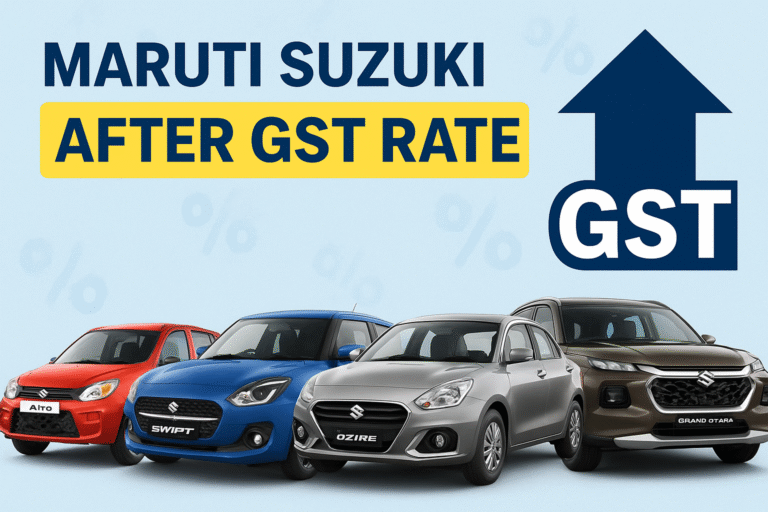The Goods and Services Tax (GST), introduced in India on July 1, 2017, was one of the most significant tax reforms in the country’s history. Designed to replace a complex web of indirect taxes, GST has streamlined the taxation system and created a unified national market. However, not all products and services in India fall under the GST regime. Certain essential items, agricultural goods, healthcare-related products, and specific services are exempt to protect consumers and promote public welfare.
In this detailed guide, we will explore on which products GST is not applicable in India, why such exemptions exist, and how these exemptions impact consumers and the economy.
Understanding GST in India
Before diving into the exemptions, it’s important to understand what GST is. GST is a comprehensive, destination-based tax levied on the supply of goods and services. It is collected at each stage of the supply chain but with credit for the taxes paid at earlier stages.
GST is divided into four main slabs: 5%, 12%, 18%, and 28%, along with a 0% slab (GST-exempt category). The products and services under the 0% GST slab or exempted category are those where no GST is charged.
Why Are Some Products GST-Free in India?
The government exempts certain goods and services from GST for reasons such as:
-
Basic Necessities – To ensure affordability of essential items like fresh vegetables, milk, and grains.
-
Social Welfare – To protect economically weaker sections by keeping healthcare, education, and certain food items tax-free.
-
Agricultural Support – To promote farming and agriculture by keeping raw produce outside the GST net.
-
Encouraging Growth – To encourage industries such as exports and small businesses by reducing their tax burden.
Categories of Products Where GST is Not Applicable
Let’s now break down the list of products exempt from GST in India.
1. Agricultural Products
Agriculture is the backbone of India’s economy, and GST exemption ensures farmers and consumers are not burdened with extra costs. Some GST-exempt agricultural items include:
-
Fresh fruits and vegetables
-
Unprocessed cereals and pulses (like wheat, rice, dal)
-
Fresh milk and pasteurized milk
-
Eggs, meat, and fish (fresh, not packaged or frozen)
-
Flour (atta), gram flour (besan), puffed rice (muri)
-
Agricultural tools like hand tools used by farmers
This exemption ensures that essential food staples remain affordable for the majority of the population.
2. Healthcare Products and Services
Healthcare is a sensitive and essential sector. To make it accessible, many health-related products and services are free from GST:
-
Human blood and its components
-
Healthcare services provided by hospitals, clinics, and diagnostic centers
-
Services by doctors and paramedics
-
Life-saving drugs (some are taxed at 5% but many are exempt)
-
Ambulance services
This exemption helps in reducing healthcare costs for patients, ensuring better access to medical services.
3. Educational Services
Education is a fundamental right in India. To encourage learning and reduce the financial burden on students and parents, many education-related services are exempt from GST:
-
Services provided by educational institutions (schools, colleges, universities)
-
Pre-school and higher education recognized by law
-
Courses leading to qualifications recognized by law
-
Services provided to educational institutions, such as transportation of students and catering (in some cases)
4. Food Items (Unprocessed and Essential)
Daily food essentials form a large part of the exemption list. Some major GST-free food items are:
-
Fresh vegetables, roots, and tubers
-
Fresh fruits
-
Unbranded cereals and pulses
-
Fresh meat, chicken, and fish
-
Jaggery (gur), salt, and natural honey
The exemption ensures affordable nutrition for households across the country.
5. Livestock and Animal Products
Certain animal products and livestock are also GST-exempt:
-
Cattle, poultry, and sheep
-
Aquatic animals like prawns and shrimp (unprocessed)
-
Natural animal hair, wool, and raw silk
6. Cultural and Social Goods
To preserve Indian traditions and social practices, certain goods are not taxed under GST:
-
Books, newspapers, and journals (except e-books)
-
Handloom products (in some categories)
-
Services by performing artists with earnings up to a threshold
-
Charitable and religious services
7. Financial and Government Services
Some financial and government-related services are exempt:
-
Services by the Reserve Bank of India
-
Services by the government to individuals (excluding commercial activities)
-
Agricultural loans and services by agricultural credit societies
8. Petroleum and Alcohol (Special Case)
Technically, petroleum products (petrol, diesel, natural gas, ATF) and alcohol for human consumption are not under GST. Instead, they are taxed by states under VAT and excise duty. Though not “exempt,” they are outside the GST framework altogether.
Key List of Products Not Covered Under GST (Quick Reference)
Here’s a snapshot of GST-exempt products:
-
Fresh fruits and vegetables
-
Unbranded cereals and pulses
-
Milk, eggs, curd, lassi, and buttermilk
-
Bread, natural honey, jaggery, and salt
-
Books and printed newspapers
-
Hand tools used in agriculture
-
Human blood and medical services
-
Educational services
-
Charitable services
Impact of GST Exemptions on Consumers
-
Affordability – Essential products remain accessible to all income groups.
-
Encouragement for Agriculture – Farmers benefit as their produce doesn’t attract GST.
-
Healthcare Relief – Patients pay less for treatments and life-saving services.
-
Education Support – Students and parents save on schooling and higher education costs.
Challenges of GST Exemptions
While exemptions help consumers, they also bring challenges:
-
Revenue Loss for Government – Exemptions reduce the total GST collection.
-
Complex Compliance – Businesses must separate exempt and taxable goods, adding paperwork.
-
Ambiguity in Classification – For example, unbranded rice is exempt, but packaged rice attracts GST, leading to confusion.
Conclusion
The GST exemption list in India is designed with social welfare, affordability, and economic growth in mind. Products like fresh fruits, vegetables, cereals, milk, healthcare services, and educational services are GST-free to ease the burden on common citizens. Additionally, petroleum and alcohol remain outside the GST structure.
Understanding on which products GST is not applicable in India helps businesses, consumers, and policymakers make informed decisions. While the system isn’t without challenges, it balances revenue generation with the welfare of the public.
On which products GST is not applicable in India, GST exempted products list in India 2025, GST free items in India, Goods without GST in India, GST exemption list 2025, GST, GST 2.0






